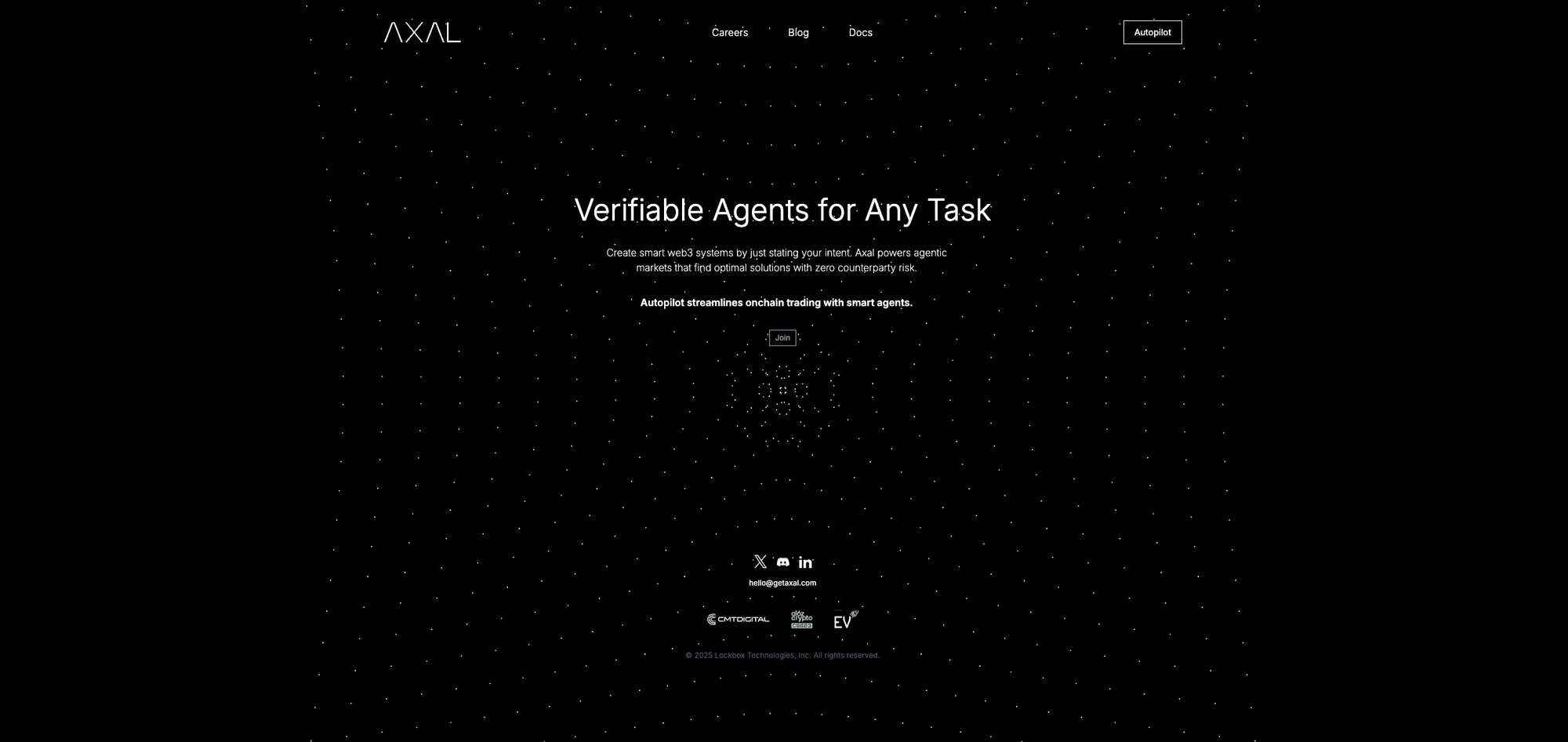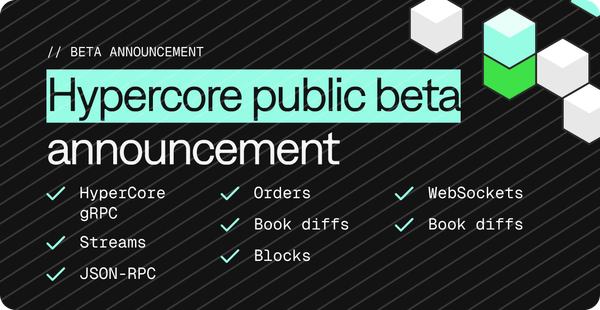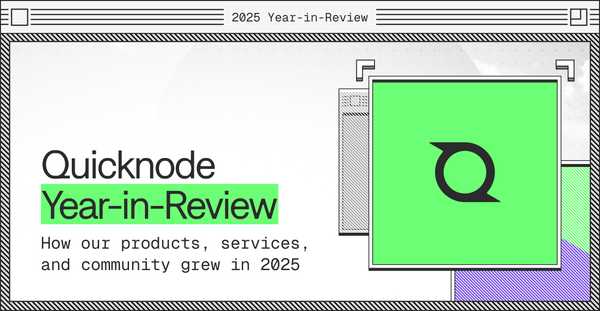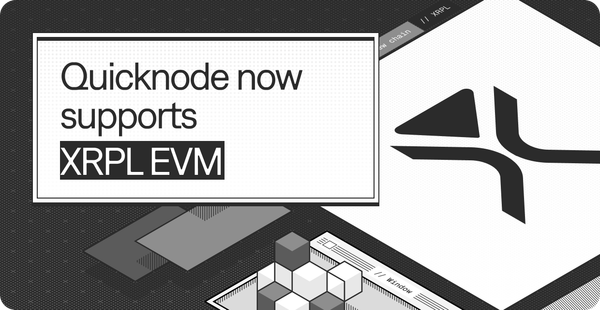Feature Fridays: Axal
Axal is a blockchain-powered task marketplace enabling real-time, verifiable execution of digital tasks, starting with DeFi through its Autopilot trading platform.

Welcome back to Feature Fridays! This week, we’re excited to highlight Axal, a pioneering company reimagining the internet for task execution. Founded by Ashlan Ahmed, a Harvard graduate, and former AWS Connect engineer, Axal is building a competitive task marketplace powered by blockchain and agent swarms. Unlike traditional systems that rely on manual API integrations, Axal’s architecture enables real-time, verifiable execution of digital tasks—starting with DeFi. Their first product, Autopilot, streamlines DeFi trading by optimizing order flow through agentic auctions, delivering faster, cheaper, and chain-abstracted transactions.

Q & A with Axal 👇
Could you introduce yourself by sharing your name, prior experience, and current role within your company? Additionally, please briefly explain your company's mission and what it offers to its customers.
I’m Ashlan Ahmed, founder and CEO of Axal. I graduated from Harvard College in 2024 with Computer Science and Economics degrees and previously worked at Amazon Web Services Connect on API infrastructure. I have also begun competing in Web3 hackathons since 2020 and have even won a few.
Axal’s mission is to create an action-based internet. Here’s what I mean: the internet is great at collecting information. It’s not so great at executing tasks. That’s because solutions like OpenAI Operator rely on API wrangling and can only scale as fast as the team can add functionality. We’re trying to reimagine that through competitive task marketplaces and strong guarantees via blockchain. Imagine a world where you state your intent through a Google-like interface, and agent swarms compete to execute it for you. That’s what we’re building at Axal.
We began with DeFi primitives and a product called Autopilot, which will be trading with real money by the end of January.
How has your company grown and changed since its inception, and what do you have planned for its future?
Axal has gone through massive changes since its inception. We started at a16z’s Crypto Startup School in the spring of 2023., and we’ll soon start extending it Back then, the company was called Lockbox. It was an automated treasury management solution and the first iteration of Axal.
What inspired you to develop Axal, and how did you conceive the idea?
The architecture of companies like Across, UniswapX, and CowSwap has always fascinated me. Instead of relying on the inefficiencies of Automated Market Makers, we can outsource DeFi primitives directly to agents to execute orders faster, cheaper, chain abstracted, and create an overall better user experience. The realization here was: Why
That was the impetus behind Axal: competitive agentic auctions for all digital tasks—sports betting, rideshare, e-commerce, and more. The internet aggregates information and spits out the best one for you. However, we still rely on siloed applications, APIs, and service providers for tasks fetching and verifying token holdings for Autopilot users, getting the latest Liquidity pool rates, and simulating and executing. Tasks should be like information—immediate execution at your fingertips. That was the inspiration and conception of Axal.
Can you provide insight into Axal’s progress by sharing any metrics or milestones indicating its traction?
We’ve moved incredibly fast. After the fundraiser, we hired a great team, launched Gekko AI through Virtuals, created the beta version of Autopilot, and got to nearly 10,000 community members via Twitter in only three months. We also have over 5,000 Autopilot beta testers eagerly waiting for the end-of-January release. Autopilot creates agentic auctions for all DeFi primitives.
However, we’re building towards something more significant. It’s a marathon, but we’re moving as fast as possible.
How does your company utilize QuickNode, QuickNode’s products, and what benefits does it bring to your business operations?
Axal uses QuickNode as its primary RPC provider on each application tier, fetching and verifying token holdings for Autopilot users, getting the latest Liquidity pool rates, and simulating and executing transactions across chains. An upcoming feature on Autopilot, which monitors chain states to trigger stop-loss and limit orders on behalf of the users, utilizes QuickNode streams to get real-time updates on Liquidity pools across all supported chains as well.

About QuickNode
QuickNode is building infrastructure to support the future of Web3. Since 2017, we've worked with hundreds of developers and companies, helping scale dApps and providing high-performance access to 60+ blockchains. Subscribe to our newsletter for more content like this, and stay in the loop with what's happening in web3!





